Top 15 Applications of Data Science

Introduction
Data Science is the field of study to process large amounts of data residing in the organization’s repositories by applying various scientific methods. It is a discipline that brings together statistics, data analysis, Machine Learning, Computer Science, and their related methods to process and analyzes the data, and understand the underlying patterns and trends in it. It includes collection, cleaning, and preparation of the data and identifying the patterns to derive insights that can help organizations become data-driven in decision-making for their growth and success.
There is not a single industry that has not been affected and transformed by Data Science. As enterprises have realized the true value and power of data, all organizations across various industries such as Finance, Technology, Retail, Healthcare, Manufacturing, E-Commerce, etc. have now embraced Data Science in their decision-making and strategic planning processes to fuel their growth.
In this article, we will discuss various industry-wise applications of Data Sciences and how Data Science has transformed these industries.
Top Applications of Data Science
Top applications of data science are as follows -
- Fraud and Risk Detection
- Healthcare
- Internet Search
- Targeted Advertising
- Product Recommentations
- Advance Image Recognition
- Speech Recognition
- Airline Route Planning
- Gaming
- Augmented Reality
- Transportation/Logistics
- Finance
- E-commerce
- Autocomplete
- Education

Data Science has become an integral part of nearly every company on this planet. There is not a single industry that is not dependent on data for its growth and success.
However, Data Science applications have not evolved overnight. With the advent of faster computing and cheaper storage, we can now process complex data types such as images, text, etc., and train complex Deep Learning models on large amounts of data within a reasonable timeframe. Due to this, Data Science has affected and transformed almost all organizations across industries and has become an integral part of their decision-making process.
Let’s explore the popular applications of Data Science in different areas and sectors.
Fraud and Risk Detection
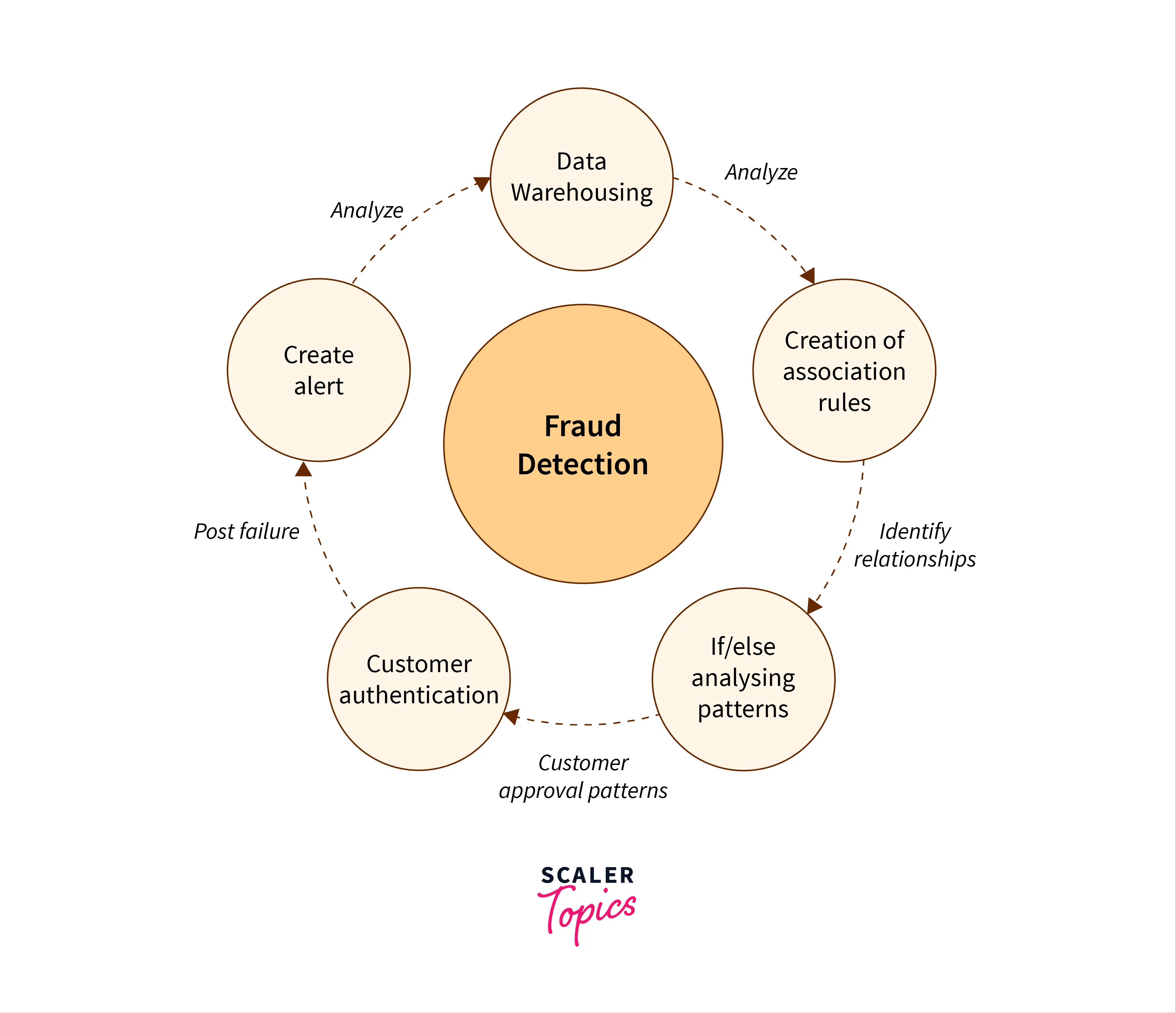
- Every year, each company in the Finance industry suffers from fraud-related losses and damages. According to the Federal Trade Commission (FTC), in the USA, losses for consumers due to banking-related frauds and scams increased by 70% to 5.8 billion USD. Around 3.4 million consumers have reported banking fraud to the FTC. Also, there are bad debts suffered by banking institutions, only adding to their losses and damages mentioned above.
- In the pre-Data Science era, rule-based approaches were used to detect fraud and risks in banking transactions and detecting bad loans. But rule-based approaches suffer from many problems, such as it can only catch obvious fraudulent transactions and requires a lot of human effort and time to analyze the data and develop rules.
- Now, financial institutions and banking companies have been using Data Science to combat fraud and risks in the industry. Banking companies use Data Science to analyze transactions in real-time to flag them as fraudulent or clean. For example, credit card company Mastercard uses a machine learning and AI-based approach to track and process variables such as transaction size, location, time, device, and purchase data. Their system also assesses account behavior in each operation and provides real-time judgment on whether a transaction is fraudulent.
- Data Science has also come to the rescue in detecting bad loans. Banks analyze risk probabilities before sanctioning a loan. They use consumer segmentation, analyze past expenditures, and other variables to determine whether consumers will default on the loan or not.
Healthcare
- Healthcare has benefited greatly due to the use of Data Science in this sector. A few of the most common applications of Data Science in healthcare are -
- Cancer Detection - Data science is used to help diagnose a tumor or cancer in the early stages by analyzing the medical images, which can have many advantages in prognosis and can save many lives.
- Patient Diagnosis - Data Science can be used to monitor patients’ health with the help of IoT devices. These devices monitor various medical conditions such as heart rate, body temperature, blood pressure, etc., and send data to doctors for further medical analysis. This helps them to take the necessary steps for treating patients accordingly.
- Drug Discovery - Drug Discovery is a very long process that takes a lot of time, research, and resources. Using Data Science, this process can be accelerated by predicting the success rate of the drug in the initial stages. Data Science algorithms can also help forecast how the drug would behave in a human body using advanced mathematical modeling and simulations, resulting in reduced turnaround time for the drug discovery process.
- Genomics - applications of Data Science have enabled personalized treatment through research in genetics and genomics. Using various Data Science algorithms, one can analyze the DNA and understand how a drug would react to a particular gene.
Internet Search
- All of the search engines, whether it is Google, Bing, or Yahoo, are powered by Data Science. These search engines take the query as input and apply various Data Science techniques to provide the most relevant results to the user from the Internet within a fraction of a second.
- These Data Science techniques utilize Machine Learning algorithms that factor in a user's past search history, demographics, contextual attributes, etc. before recommending the most relevant results to the user. They also predict the intent of the search query. E.g., when a user searches for an iPhone on the internet, the intent prediction model can help detect whether this search is meant for buying the iPhone or getting some information about it.
- A few of the other common use cases of Data Science in search engines are the intent prediction of the query, predictive search, auto-correct, etc.
Targeted Advertising
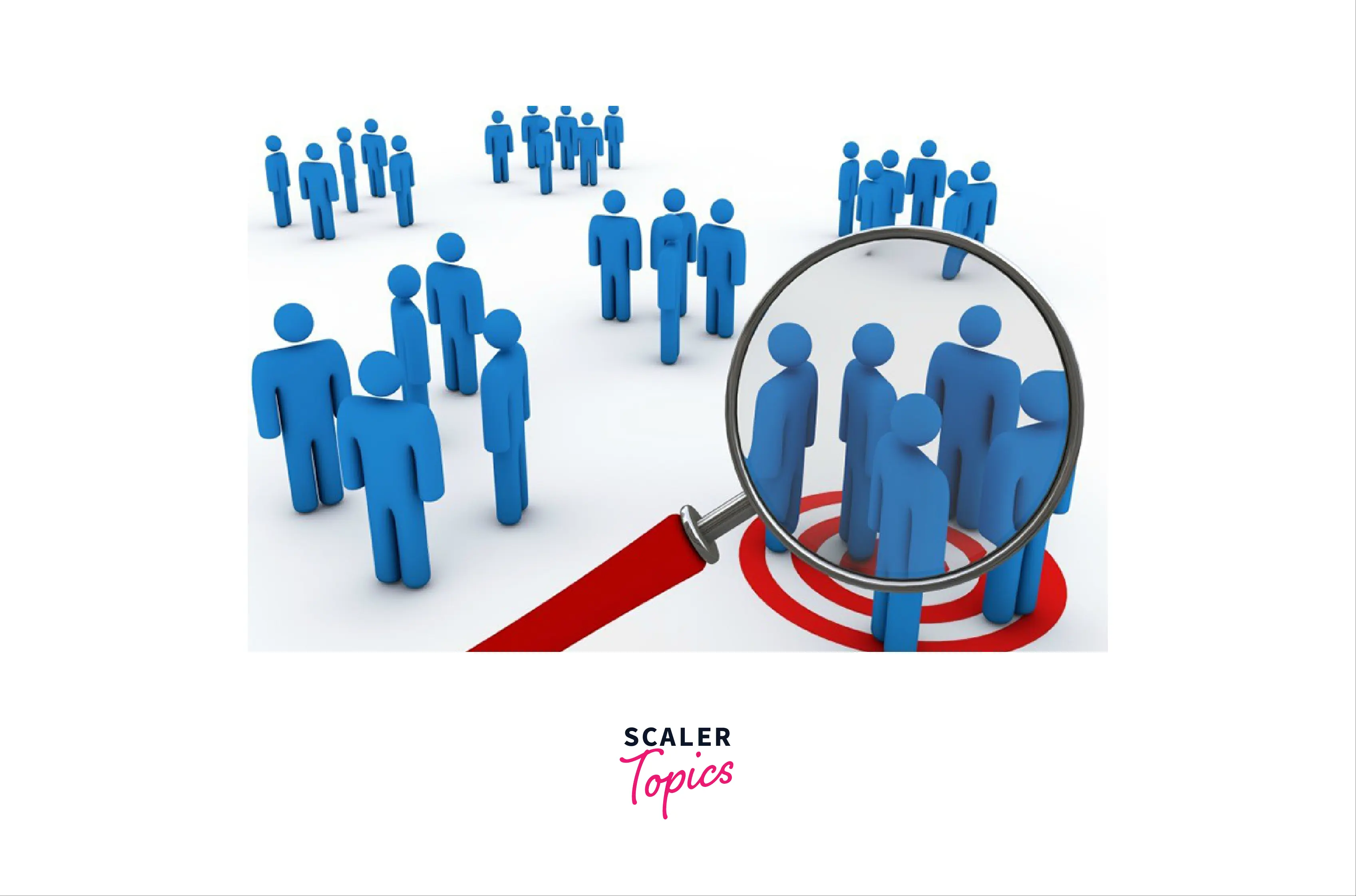
- Advertisers are very interested in precisely targeted ads. This helps advertisers to spend minimum resources to reach the desired audience segment. This is resolved by applying targeted advertising. It involves determining where, when and whom to display particular advertisements on the Internet.
- Data Science has helped in providing targeted ads to consumers by analyzing their demographics, behavior, purchase history, and contextual attributes. Let’s see one example of how targeted advertising works. For example, if a user searches on Google about buying a Mobile Phone. Later that user would see the recommendation links to purchase that mobile phone across social media and other websites. It is one of the most profitable business models and accounts for huge amounts of revenue for the tech giants such as Google, Facebook, Bing, etc.
Product Recommendations
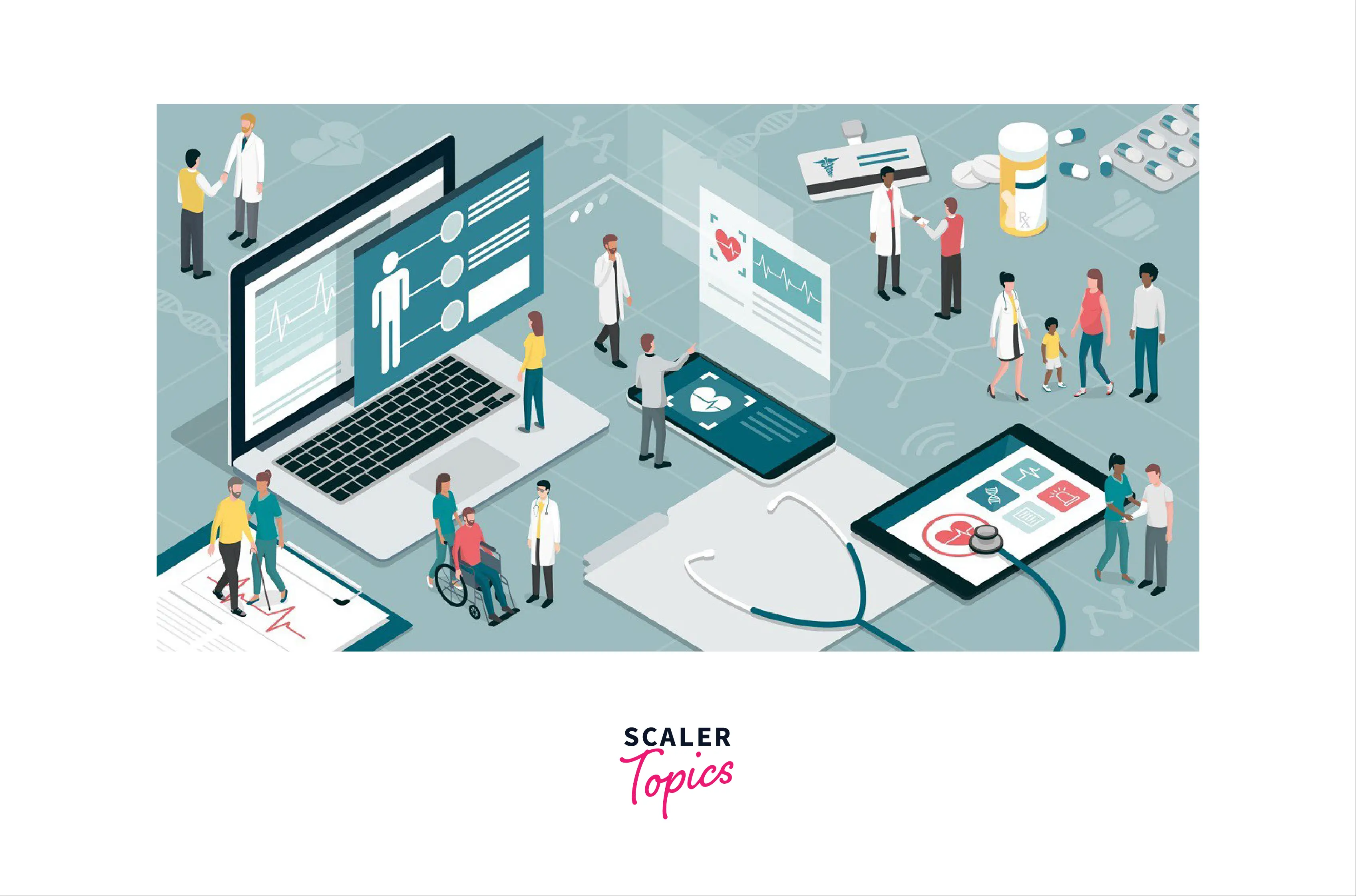
- The Product Recommendation engine is a tool that leverages Machine Learning techniques and provides suggestions for relevant products to the consumer to increase the company's revenue and consumer engagement. Many websites such as Amazon Shopping, Flipkart, Myntra, etc. are powered by product recommendation engines to increase customer engagement and boost the sales of their products. E.g., 35% of the revenue of Amazon is generated because of recommendation engines.
- Based on the relationship, the product Recommendation engine can be divided into three categories -
- User-Product Relationship - It utilizes a content-based filtering approach and provides suggestions based on an individual user’s purchase history and preferences. E.g. if a user likes an action movie, then this system will recommend other similar action movies to the user.
- User-User Relationship - In this category, products are recommended to the user based on other users who have similar product tastes and preferences. It leverages collaborative filtering techniques to recommend relevant products to the consumer. E.g. if a user likes a music/book, other music/books can be recommended which are liked by other users having similar tastes.
- Product-Product Relationship - It is based on similar or complementary products that can be combined together. E.g. users purchasing a printer can be recommended an ink cartridge.
Advanced Image Recognition

- Advanced Image Recognition is a process of identifying faces, objects, colors, patterns, shapes, etc. in the image by processing it using deep learning techniques.
- It has many applications in different sectors. A few of the most popular applications include -
- Face Recognition - When you upload an image to Facebook, it automatically provides suggestions to tag the people present in it. It is powered by Advanced Image Recognition.
- Traffic Sign Board Detection - In self-driving or autonomous cars systems, Advanced Image Recognition is applied to detect traffic signals, and various sign boards such as speed limit, road lane detection, etc.
- Object Detection - Google Lens uses this approach to take an image as an input query and recommend relevant results by detecting various objects present in it.
Speech Recognition

- Speech recognition allows you to speak out the message and automatically convert it to text. Some of the best examples of speech recognition products are Google Voice, Siri, Cortana,, etc.
Airline Route Planning
- Airline industries worldwide are known to bear heavy losses because of this industry's low-profit margin nature. Only a few of the airlines have managed to maintain their occupancy and profits. Fierce competition in this sector and dependency on other factors such as global fuel prices, etc. have made things worse for this sector.
- Most airline companies have embraced Data Science to become profitable in this sector. A few of the use cases of Data Science in the airline industry include -
- Predict Flight Arrival
- Predict which class of aircraft to purchase
- Optimized Route Planning (E.g., deciding whether a flight should have a direct route or multiple halts between two destinations)
- Demand Forecasting
- Dynamic Pricing
Gaming
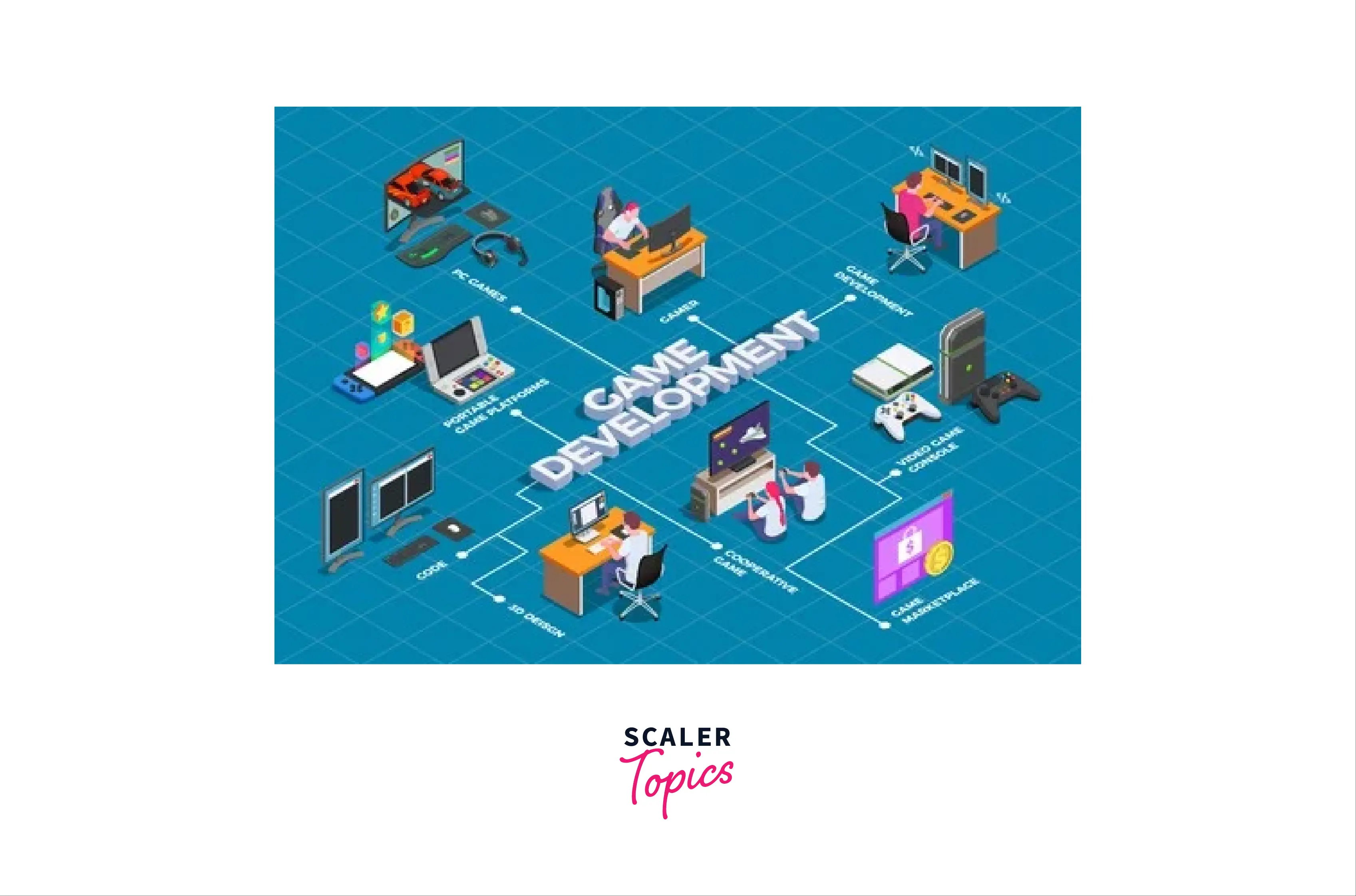
- With 2 billion gaming players in the world, this industry is already on the rise, and revenues from this industry are expected to grow in the next few years as well.
- Major players in this industry such as EA, Activision, Sony, etc. are using Data Science for multiple applications. A few of the popular applications of Data Science are Game Designing and Development, Game Monetization, Visual Effects, Graphics, etc.
Augmented Reality
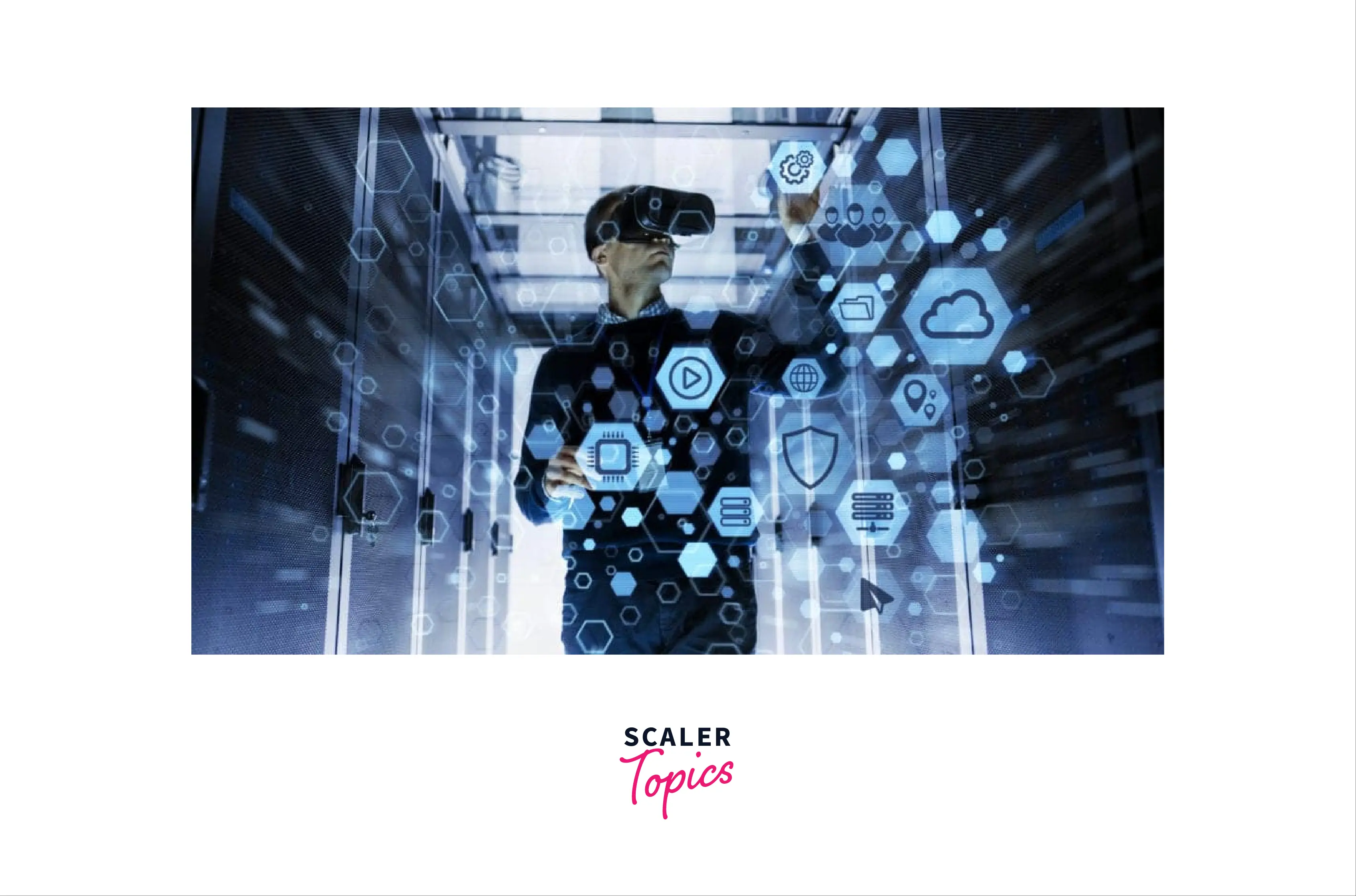
- Augmented Reality (AR) or Virtual Reality (VR) is heavily dependent on Data Science to provide a consistent and best-viewing experience to consumers via a VR headset. The players in this industry apply complex deep learning techniques to process images, videos, etc., to give viewers a great experience.
Transportation/Logistics
- The objective of the transportation or logistics industry is to ensure the efficient and safe movement of people or goods from one location to another. Data Science has also entered the transportation industry. Data Science has transformed this industry by contributing to self-driving cars.
- We have laid down a few of the most popular applications of Data Science in the transportation or logistics industry.
- Self-driving Cars - Data Science is crucial in self-driving or autonomous car systems. It is used in various scenarios such as detecting pedestrians and other vehicles on the road, detection of traffic signals and signboards, road lane detection, etc.
- Route Optimization - Data Science can optimize delivery trucks/vehicles routes. It can help reduce the delivery time which will further save cost and resources for the company.
- Space Optimization - It is an optimization problem to solve storage and packaging issues in warehouses, trucks, containers, etc. It can help maximize the capacity for given storage, thus reducing the cost and resources for the company.
- Dynamic Pricing - Many transportation companies such as Uber, Ola, etc. have been using Data Science techniques to forecast the demand of bookings and decide prices accordingly. Surge Pricing during peak hours or rainy seasons is one example of Dynamic Pricing.
- Safety - Data Science is also used to analyze driving patterns, fuel consumption, and other indicators to provide a safer environment for drivers.
Finance
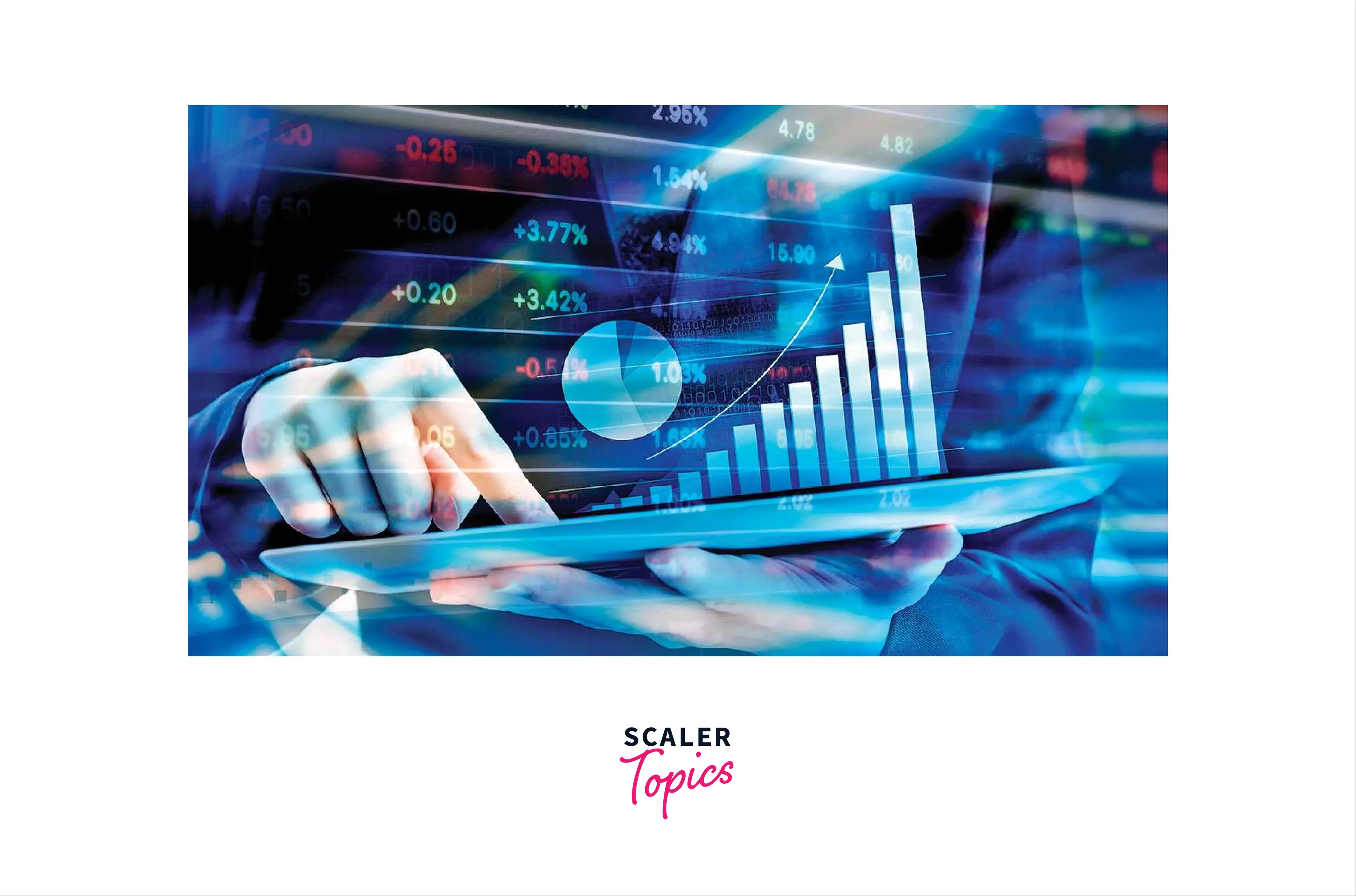
- Before the world was aware of Data Science, financial institutions and banking companies were using it for a variety of use cases in this industry such as combating risks and frauds, stock analysis, etc.
- Below are a few of the most popular applications where Data Science plays a key role -
- Fraud and Risk Detection - Data Science is used by Financial Institutions and Banks to analyze various factors of transactions such as amount, location, etc. in real time to judge whether a given transaction is fraudulent or not.
- Detection of a Bad Asset - Insurance Companies, Banks, etc. leverage Data Science techniques to analyze a customer’s past loans, annual income, demographics, etc. to detect whether the customer would default or not.
- Stock Pricing Forecasting - Data Science is used by various investment firms to analyze a stock based on multiple attributes such as companies' financials, other external macroeconomic and geographical factors, etc. to forecast the stock's future price.
- Customer Support - Financial institutions utilize Machine Learning and Data Science to provide personalized recommendations, reduced turnaround time in customer ticket resolution, chatbots in customer support, etc.
E-Commerce

- Companies in E-Commerce and Retail Industries such as Amazon, Walmart, Flipkart, Myntra, etc. have greatly benefitted from Data Science. Some of the ways in which Data Science has transformed the e-commerce industries are -
- Consumer Segmentation - This approach helps E-Commerce companies to profile their customers in various categories based on their likes, dislikes, and demographics. Insights from segmentation can further be used in personalized marketing campaigns and product recommendations.
- Demand and Capacity Forecasting - Data Science can be used to forecast the demand of the products in peak seasons and accordingly assign the required capacity in warehouses for faster and smooth deliveries.
- Price Optimization - E-Commerce companies can analyze the supply and demand of a given product and use Data Science techniques to come up with the optimal price of a product.
- Product Recommendation - It is used to recommend relevant products to the user to increase engagement and boost revenues for the company.
- Sentiment Analysis - E-Commerce companies take advantage of Data Science to analyze the reviews and feedback provided by the customers. It can help them understand why a product is being liked or disliked.
- Fraud Detection - A few examples of fraud in the E-Commerce industry are Return Fraud when customers return different or used items for a cash refund, Payment Fraud when stolen cards are used for purchases, etc. Data Science is being used by E-Commerce companies to combat these kinds of frauds.
Autocomplete
- The Autocomplete feature is powered by Data Science where the users can just type a few letters or words, and they will get the auto-completing line feature.
- It is being used heavily in Gmail, Search Engines Social Media, Outlook, etc.
Education
- Data Science can play a vital role in transforming the education industry. Some of the ways Data Science can be used in the education sector are -
- Measuring instructor’s performance
- Innovate and design the curriculum
- Monitor student’s academic and non-academic skills
Conclusion
Now you have gained an understanding of various applications of Data Science in industries like healthcare, finance, e-commerce, education, etc., and how Data Science has transformed all of these industries by making their products and offerings better for the consumers. In this competitive world, it is crucial for all of these industries to shift their focus on adopting Big Data and Analytics technologies, and nurturing Data Science-based solutions to stay in the game and move ahead. As per a survey by NewVantage Partners in 2021, 91.7 percent of the organizations have increased their investment in Big Data and Data Science initiatives. Another report by the market research firm IDC in 2021 has predicted that investment in Big Data and Analytics systems will grow at a compound annual growth rate (CAGR) of 12.8% through 2025. This means that demand for Data Scientists will also be high in the next decade. Whether you are a student or an experienced professional, building a career as a Data Scientist could be a smart move as this job offers a lucrative and promising career path.
If you want to start a career in Data Science, check out Scaler’s Data Science Program.
